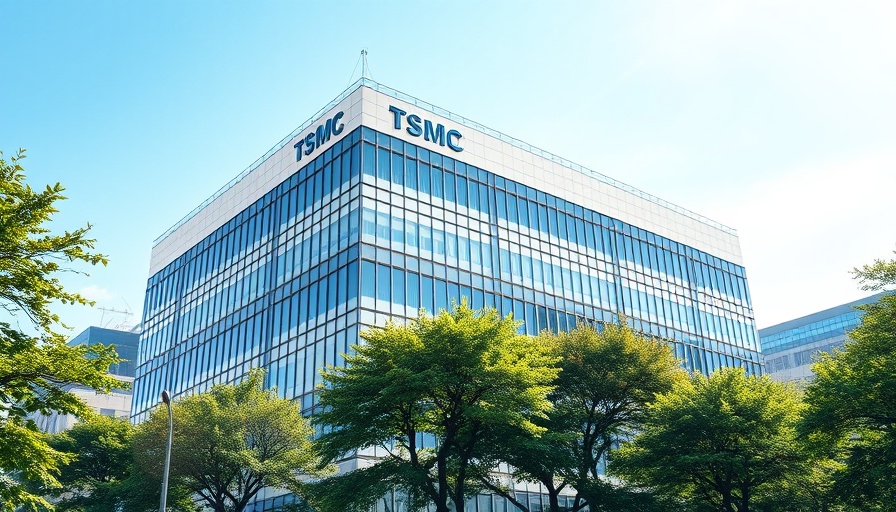
TSMC's Game-Changing $100 Billion Investment in U.S. Chip Manufacturing
In a groundbreaking announcement, Taiwan Semiconductor Manufacturing Co. (TSMC) has revealed plans to invest an astounding $100 billion in its U.S. manufacturing capabilities. This investment builds upon the existing $65 billion commitment to construct three fabs (fabrication plants) in Arizona, positioning TSMC as a significant player in the global semiconductor landscape.
The Drive for Advanced Semiconductor Production
TSMC's new $100 billion initiative will allow the company to erect three additional fabrication plants and two advanced packaging facilities, crucial for creating next-generation processors. This strategic move not only aims to meet the rising demand for artificial intelligence (AI) chips—already supplied to major firms like Nvidia and AMD—but also bolsters America's position in semiconductor technology. With the assembly of these capabilities, TSMC anticipates producing the most powerful AI chips domestically within the next few years.
A Significant Economic Impact on Local Employment
This expansion will be a boon for employment in the region, projected to create around 40,000 construction jobs over the next four years. Furthermore, TSMC estimates that once operational, tens of thousands of long-term tech positions will be generated, contributing significantly to the local economy and empowering the workforce with high-paying jobs. This growth aligns with broader goals outlined in the CHIPS Act, designed to rejuvenate U.S. semiconductor production and reduce reliance on foreign manufacturers, especially amidst geopolitical tensions regarding the supply chain.
Anticipated Technological Advancements
While TSMC remains tight-lipped about the specific technologies that will be deployed in these new fabs, their first Arizona plant has already begun producing chips with a four-nanometer process, a step toward utilizing the more efficient two-nanometer design expected for future outputs. The new investment will also usher in innovations in transistor technology, enhancing chip performance while minimizing energy consumption, which is pivotal for eco-friendly tech development.
The Broader Implications on Global Chip Supply
The implications of TSMC's massive investment extend beyond mere economic benefits; it represents a strategic pivot in the global semiconductor market. As TSMC shifts some production capabilities to the U.S., it may ease concerns over national security and supply chain vulnerabilities that have surfaced in recent years—especially regarding Taiwan's geopolitical climate. By fostering domestic manufacturing, TSMC will likely influence a trend among other global manufacturers to reassess their production strategies in favor of more localized facilities.
Conclusion: The Future of Semiconductor Manufacturing
TSMC's unprecedented $100 billion investment signifies not only a shot in the arm for U.S. manufacturing but also serves as a bold commitment to advancing technology and securing economic stability. As the world leans heavily into AI-driven solutions, the importance of this investment cannot be understated. It's a defining moment for semiconductor manufacturing in America. For business leaders and tech-savvy professionals, staying informed and adapting to these shifts will be paramount in strategically navigating the future of tech development.
Are you prepared to adapt to the rapidly evolving landscape of technology and manufacturing? Dive deeper into the world of semiconductor innovation, and discover how such investments can transform industries.
 Add Row
Add Row  Add
Add 










Write A Comment